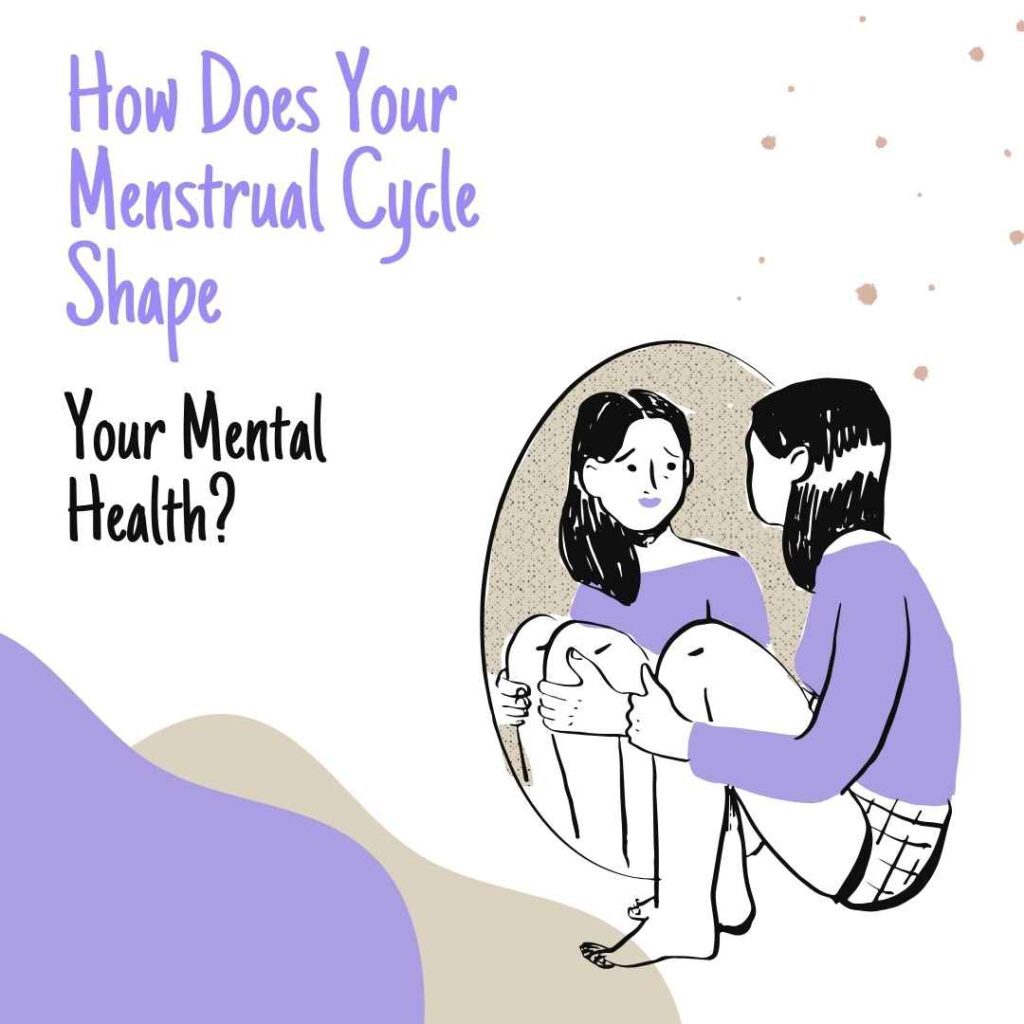How Does Your Menstrual Cycle Shape Your Mental Health?
Have you ever wondered why your emotions can feel like a rollercoaster during certain times of the month? The menstrual cycle is more than just a physical process; it plays a powerful role in shaping your mental health and emotional well-being. From mood swings to shifts in cognitive function, hormonal fluctuations throughout the cycle can leave a noticeable mark on how you feel and think. By understanding the connection between the menstrual cycle and mental health, women can take control of their emotional well-being and navigate these changes with confidence. In this blog, we’ll dive into the phases of the menstrual cycle, the science behind its effects on mental health, and practical tips to manage emotional highs and lows.
The Menstrual Cycle: Phases and Hormonal Influence
The menstrual cycle typically spans about 28 days, although it can range from 21 to 35 days. It has four primary phases:
Menstrual Phase (Days 1–5): This phase begins with menstruation or the shedding of the uterine lining. Estrogen and progesterone levels are at their lowest, leading to fatigue and mood fluctuations.
Follicular Phase (Days 6–14): Estrogen levels start rising, stimulating the growth of follicles in the ovaries. Women may experience an improvement in mood and energy levels during this time.
Ovulation Phase (Day 14): The release of an egg from the ovary. Estrogen peaks, which can cause heightened mood, but some women may experience emotional sensitivity.
Luteal Phase (Days 15–28): Progesterone levels increase after ovulation. If the egg is not fertilized, both estrogen and progesterone decline, leading to premenstrual symptoms, such as irritability, anxiety, and sadness.
The fluctuations in hormones like estrogen and progesterone during the menstrual cycle have a direct impact on mood and mental health, with many women reporting changes in emotional well-being during different phases of the cycle.
Hormonal Fluctuations and Mental Health
The changing hormone levels throughout the menstrual cycle are responsible for mood fluctuations. Estrogen and progesterone are the key hormones that influence mental health.
Estrogen: This hormone increases serotonin levels, a neurotransmitter that regulates mood. Higher estrogen levels during the follicular phase improve mood and cognitive function. As estrogen levels drop before menstruation, women may experience mood changes during menstruation, including sadness, anxiety, and irritability.
Progesterone: This hormone has a calming effect on the brain. However, when progesterone levels decline in the luteal phase, it can lead to emotional sensitivity, premenstrual symptoms, and even mood changes during periods.
Women often experience an emotional roller coaster in the days leading up to their monthly period. This can manifest as:
Irritability
Fatigue
Anxiety
Sadness
Mood swings
These emotional changes are normal but can be severe for some women, especially for those who experience Premenstrual Dysphoric Disorder (PMDD). PMDD affects about 3-8% of women and can cause debilitating mood changes during menstruation, such as depression, irritability, and severe anxiety.
The Link Between the Menstrual Cycle and Mood Disorders
The menstrual cycle can have a significant impact on women with pre-existing mental health conditions, such as depression or anxiety. Studies show that around 60% of women with mood disorders report worsening symptoms during their period cycle, particularly in the luteal phase.
Women with major depressive disorder or bipolar disorder may find that their emotional well-being deteriorates during the luteal phase of the menstrual cycle. Some may even experience suicidal thoughts during this time.
Additionally, the hormonal changes associated with the menstrual cycle can exacerbate symptoms of other mental health conditions, such as chronic pain disorders or attention deficit hyperactivity disorder (ADHD). Recognizing this connection can help women anticipate emotional challenges and seek appropriate support when necessary.
Managing Mental Health During the Menstrual Cycle
While hormonal fluctuations are a natural part of the menstrual cycle, there are several strategies women can adopt to manage their emotional well-being throughout their cycle:
Track Your Menstrual Cycle
Understanding your menstrual cycle is key to managing mood changes. Use period-tracking apps to monitor your period cycle days and note any emotional shifts. By identifying patterns in your mood, you can prepare for the emotional changes that may occur in different phases of the cycle.
Practice Mindfulness
Engaging in mindfulness practices, such as meditation or yoga, can help manage premenstrual symptoms and reduce stress. These techniques can improve emotional regulation and create a sense of calm during the luteal phase, when mood changes on periods are most common.
Maintain a Healthy Lifestyle
A healthy lifestyle plays a critical role in managing mental health during the menstrual cycle. Regular exercise, a balanced diet, and sufficient sleep can alleviate some of the emotional challenges associated with hormonal fluctuations. Foods rich in omega-3 fatty acids, whole grains, and fresh vegetables can help support mood regulation during the monthly period.
Seek Support
It’s essential to talk about your experiences with others who understand the emotional toll of the menstrual cycle. This can include friends, family, or support groups. If the emotional impact of your cycle is severe, consider seeking professional help from a counselor or therapist who specializes in women’s health.
Consider Medical Treatment
If you experience extreme emotional disturbances related to your menstrual period, consult a healthcare professional. For severe cases of PMS or PMDD, medical options such as hormonal treatments or SSRIs (selective serotonin reuptake inhibitors) may be prescribed to alleviate symptoms.
Final Words
Understanding the impact of the menstrual cycle on mental health is crucial for managing emotional well-being. By recognizing how hormonal fluctuations influence mood, women can take proactive steps to manage their emotions throughout the cycle.
From tracking the monthly cycle phases to adopting mindfulness practices and seeking professional support, there are numerous ways to maintain mental and emotional health during the menstrual period. It is essential to remember that while the menstrual cycle is a natural part of life, its emotional effects are real and deserve attention.
By prioritizing mental health alongside physical well-being, women can lead healthier, more balanced lives—one menstrual cycle at a time.
Take control of your emotional well-being during your period cycle. If you’re struggling with PMDD, PCOS, or other menstrual-related mental health concerns, contact Mrs.Reshma, Fitness Queen. Get personalized diet and yoga sessions tailored to your needs and regain your mental balance.


